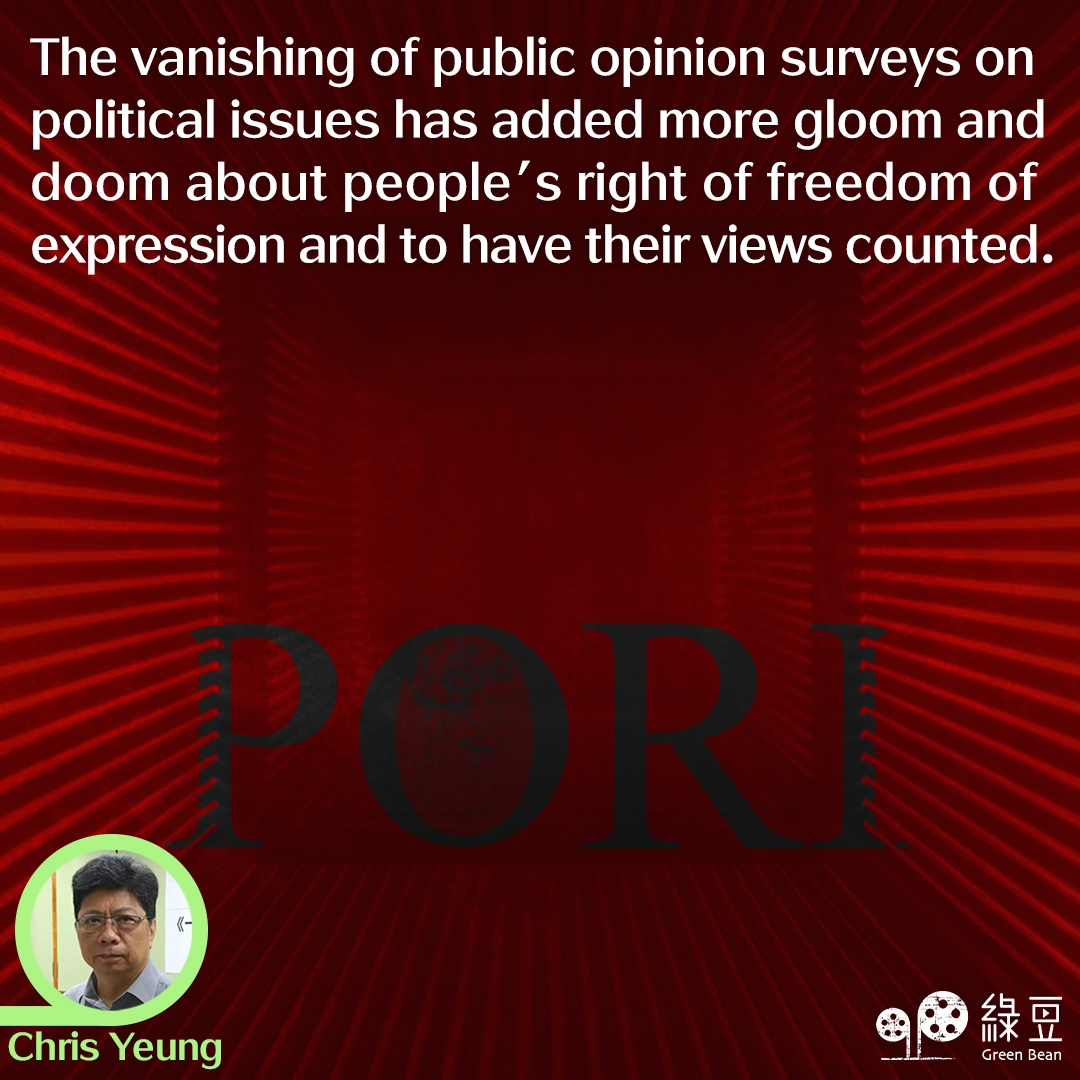The vanishing Hong Kong surveys

About this time every year since 1997, a leading Hong Kong pollster has published findings of an annual survey about the feelings of Hongkongers about the reversion to Chinese sovereignty.
The question is: Are you proud of formally becoming a national citizen of China after the 1997 Handover? Not surprisingly, the views have been mixed with remarkable fluctuations, mirroring the complexities of people’s sentiments about their post-1997 identity.
This year marks the 26th anniversary of the birth of the Hong Kong SAR. According to an announcement by the Hong Kong Public Opinion Research Institute (PORI) on Tuesday (20/6), results of the annual handover survey will not see the light. It will not be made public.
That could not be a more ironic and embarrassing episode to mark the anniversary of the city’s return to Chinese rule.
In the announcement of a drastic scale-down of its polls, PORI said one-fourth of its regular survey questions will be canceled. Of those that will continue to be polled, the results of around one-third will no longer be made available publicly, and will only be for internal or research use. Among the one-third is the 1997 handover question.
Other affected questions include those related to the Tiananmen crackdown, cross-strait issues, the city’s disciplinary forces and ratings of lawmakers and other officials, according to the pollster’s statement.
Last week’s announcement came weeks after the pollster canceled the release of results of an annual survey on Hongkongers’ views of the Tiananmen crackdown, citing “suggestions” made by “relevant government department(s).”
Although it did not elaborate, the writing is on the wall. It has been reported that there have been contacts between the PORI and national security officers. Details of the discussions have been kept in secrecy.
Pressure piled on PORI, dubbed by pro-Beijing figures as “Chung’s survey”, since the implementation of the national security law seems to have risen steadily. With political risk lingering, the difficulty of seeking financial resources for keeping the full sets of surveys going has been doubling.
Against the background, the possibility of a further trimming of PORI’s surveys should not be ruled out.
The plight of the pollster has added more chilly air to the disintegrated civil society since the national security law took effect.
On its face, there has been no evidence suggesting that the national security team is conducting investigation into the activities of PORI, not to mention formal arrests and prosecution.
Nor have there been signs that the pollster has been told explicitly not to conduct surveys on specific topics such as June 4 and the 1997 handover.
The fact that PORI decided to cut down the topics of surveys and not to publicly announce the findings of a list of political topics shows undoubtedly the pressure from unidentified forces behind the scenes has been immense.
The tense atmosphere that has been manifested in the polls saga has matched the socio-political scene illustrated by Chief Executive John Lee and his top aides and senior Chinese officials.
Speaking during a visit to Hong Kong in April, head of the State Council’s Hong Kong and Macau Affairs Office Xia Baolong has issued no-nonsense reminders to Lee and his team to stay vigilant over threats to national security.
Traditionally, June and July have been a sensitive time on Hong Kong’s calendar because of the June 4 commemoration and July 1 handover. Sensitivity grew every June since 2019 due to the sharp escalation of protests in June that year.
Although pro-democracy protests have disappeared since the law on national security was implemented, the Police has stepped up security in public places on various sensitive days in June, including June 4.
The sensitivity of release of results of surveys on political topics publicly grew at a time when the authorities are still obsessed with fears about what they perceived as “soft resistance” and “hidden” threats to national security.
Negative survey results, they fear, could incite, and perhaps deepen, public hatred towards the authorities, thus posing threats to their governance.
The irony is that the vanishing of public opinion surveys on political issues has added more gloom and doom about people’s right of freedom of expression and to have their views counted.
Worse still, scientifically-conducted polls among Hongkongers about their likes and dislikes, hopes and fears relating to a host of political topics may no longer be available, leaving more space in the records of history in blank.
▌[At Large] About the Author
Chris Yeung is a veteran journalist, a founder and chief writer of the now-disbanded CitizenNews; he now runs a daily news commentary channel on Youtube. He had formerly worked with the South China Morning Post and the Hong Kong Economic Journal.